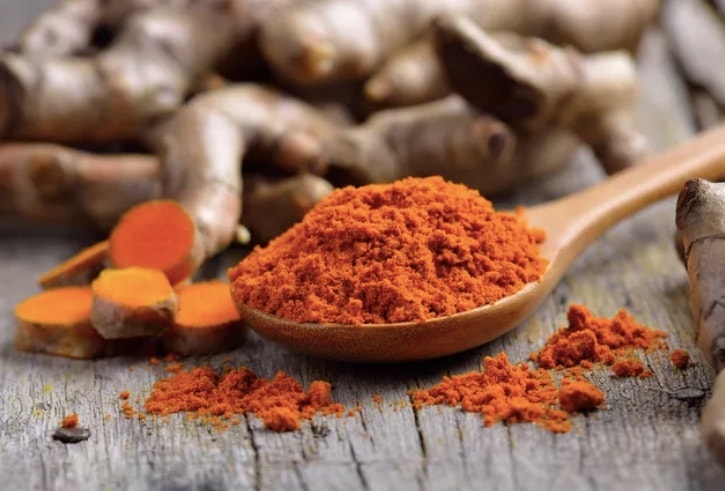Does turmeric harm the kidneys?
Turmeric contains curcumin, a powerful antioxidant with anti-inflammatory properties. However, one of the risks is that too much of it can be harmful to the kidneys. So how much turmeric is safe to consume?
According toeMedicinehealthTurmeric has long been used in traditional Eastern medicine for its health benefits. Curcumin, the main bioactive component in turmeric, is a powerful antioxidant with anti-inflammatory properties.
While turmeric and curcumin are generally safe to consume, too much of even a good thing can be dangerous. One of the risks is that large doses can be harmful to your kidneys. This is because too much curcumin can significantly increase the level of oxalate in your urine, increasing your risk of kidney stones.

Turmeric is generally safe when consumed in moderation (Photo: Gettyimages).
What are the adverse effects of turmeric?
There are other potential risks of taking too much curcumin. For example, mild side effects include stomach upset, acid reflux, diarrhea, dizziness, and headaches.
Because turmeric has blood-thinning properties, you should avoid using turmeric if you have a bleeding disorder.
Turmeric can interact negatively with medications including blood thinners, antidepressants, antibiotics, antihistamines, heart medications, and chemotherapy treatments. It can also interfere with diabetes medications and lead to dangerously low blood sugar levels.
Turmeric may aggravate stomach problems, such as acid reflux and gallstones.
Because turmeric inhibits iron absorption, you should not take it if you are taking iron supplements.
Pregnant or breastfeeding women can eat foods containing turmeric as a spice but should avoid taking turmeric supplements. These supplements can stimulate uterine contractions and cause complications.
Depending on your overall health and whether you have conditions such as digestive disorders or kidney stones, you should talk to your doctor before taking turmeric supplements.
Similarly, according to Livestrong, turmeric is generally safe in healthy people when used in small doses. However, it may cause adverse reactions in some people.
The National Center for Complementary and Integrative Medicine warns against using turmeric in high doses or for long periods of time because it can cause digestive problems. Constipation, diarrhea, nausea, vomiting, acid reflux, and stomach pain are common side effects.
This spice may also interact with certain medications, such as anticancer drugs and immunosuppressants.
A report published in Nefrologia in the November-December 2018 issue indicates that turmeric may be unsafe for dialysis patients when used in large amounts.
A 63-year-old woman on dialysis developed hematomas and spontaneous bleeding after taking 3 to 5 grams of turmeric powder for several days. The spice may have anticoagulant effects and increase the risk of bleeding, the researchers note.
In addition to these potential side effects, turmeric may contribute to acute toxic hepatitis, contact urticaria, and allergic dermatitis. Furthermore, Memorial Sloan Kettering Cancer Center warns, it may not be safe for people with digestive disorders or at risk for kidney stones.
How much turmeric is safe to consume?
Studies show that the health benefits of turmeric extract are primarily due to curcumin when used in doses of more than 1 gram per day. Since it is difficult to consume this much naturally in the normal diet, turmeric is often taken as a supplement, which contains much higher levels of curcumin.
In general, the acceptable daily intake of curcumin supplements is about 1.4 milligrams per pound of body weight, up to a maximum of 12 grams. Anything more than that may cause you to have an adverse reaction.
Potential health benefits of turmeric
Numerous preclinical trials have shown promising effects of curcumin in the treatment of heart disease, arthritis, Alzheimer's disease, digestive disorders, and metabolic syndrome.
When consumed in moderation, turmeric may provide significant health benefits:
-Anti-inflammatory properties
Curcumin has powerful anti-inflammatory properties and may be as effective as anti-inflammatory drugs but without the side effects. It can help reduce chronic inflammation in joints and wounds, reducing swelling, pain, and discomfort. Since inflammation is often at the root of a number of chronic diseases, turmeric can be used to treat conditions such as rheumatoid arthritis, inflammatory bowel disease, and pancreatitis.
-Pain relief
Curcumin may reduce rheumatoid arthritis pain, as well as gastrointestinal pain associated with inflammatory bowel disease.
-Antioxidant properties
Turmeric has powerful antioxidant properties and protects the body from free radicals that damage healthy cells. It can fight aging and boost metabolism, as well as reduce the risk of heart disease, cancer, cataracts, glaucoma, and macular degeneration (age-related eye changes).
-Boost immunity
Turmeric's natural antiseptic, antibacterial, antiviral and antifungal properties help stimulate the immune system and protect the body from infections.
-Reduce the risk of cancer
Research has shown that turmeric can kill cancer cells, hindering the growth, development, and spread of cancer at the molecular level. Turmeric in particular may play an important role in the treatment and prevention of digestive system cancers, such as colorectal cancer. It may also help counteract the effects of carcinogenic additives in processed foods.
-Reduce the risk of heart disease
The antioxidant and anti-inflammatory properties of curcumin may help prevent heart disease and cardiovascular complications. Curcumin also reduces low-density lipoprotein (LDL) or bad cholesterol, preventing atherosclerosis.
-Prevent diabetes
Curcumin slows the onset of type 2 diabetes. Turmeric supplements taken with metformin may help people with type 2 diabetes stabilize blood sugar levels.
-Preventing Alzheimer's disease
Curcumin clears the buildup of protein tangles in the brain called amyloid plaques, which are linked to Alzheimer's disease.
-Reduce depression
Curcumin increases levels of neurotrophic factors in the brain, as well as the neurotransmitters serotonin and dopamine, all of which may help people with symptoms of depression.
-Digestive support
Turmeric stimulates the gallbladder to produce bile, which helps the digestive system function more efficiently. Turmeric also supports enzyme reactions, acid production, and the timely absorption of nutrients in the intestines and can reduce bloating.
-Liver detox
Turmeric can increase the production of important enzymes that help break down and eliminate toxins in the liver. Turmeric also promotes good liver health by improving blood circulation.
-Improve bone health
Curcumin supplementation may help improve joint function, prevent bone loss, and preserve bone tissue.
-Promote healthy skin
Due to its anti-inflammatory, antibacterial and antioxidant properties, turmeric can help prevent acne, lighten dark circles, reduce scars…
Turmeric is not easily absorbed by the body when taken alone. Therefore, to get the maximum health benefits, turmeric should be consumed with black pepper, as black pepper contains a compound called piperine that helps increase the absorption of turmeric in the body. Cooking turmeric with oil also helps the body absorb more curcumin.






